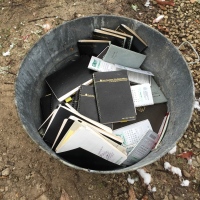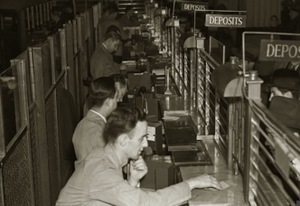Marketing communications firm (plans) “to utilize technology-based resources such as software, virtual robots, and media algorithms to create and implement advertising and marketing programs for its clients.” Excerpts below from The Ad Contrarian:
”We will need to keep a few tech people on staff to insure that our systems are functioning well and are properly integrated. But that’s it. Last-century resources like account managers, copywriters, art directors, and media planners — in other words, people — will be replaced by digital resources.”
”We have developed what we call ‘virtual robotics’ that can actually understand a client brief when it is converted into code via a proprietary algorithm we have developed. The robot program then goes online and hunts down previously created advertising and marketing campaigns in similar categories which it ‘borrows’ from — much like a traditional creative team does,” he explained.
I wrote a lot of radio commercials (we called them “spots”) over the years and while I wrote a few good ones, many were of grind-it-out-get-it-on-the-air variety. Yeah, I can imagine software doing those as well as I did.





 I’ve enjoyed my VISA Amazon rewards card (from Chase) and I’ve used the points to make purchases. But rewards cards (at least this one) is not part of the Apple Pay system. No problem. Took about 5 minutes to get approved for a card that will work with Apple Pay. Haven’t decided on whether to keep the Amazon card.
I’ve enjoyed my VISA Amazon rewards card (from Chase) and I’ve used the points to make purchases. But rewards cards (at least this one) is not part of the Apple Pay system. No problem. Took about 5 minutes to get approved for a card that will work with Apple Pay. Haven’t decided on whether to keep the Amazon card.